USB-C Hub vs. Docking Station: What’s the difference?
Find out which adapter is best for your laptop
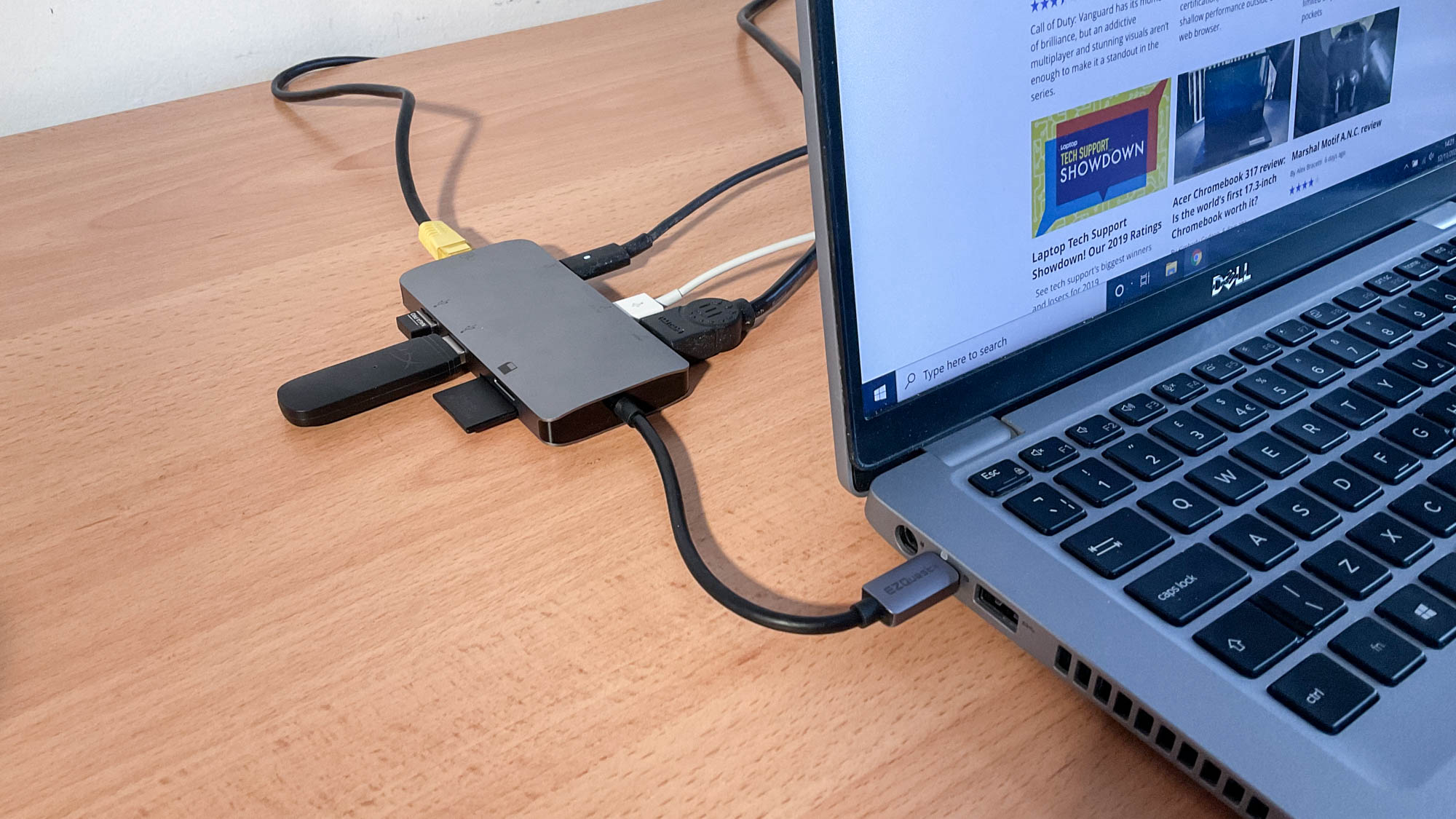
Even the best laptops need extra port support, and a USB-C hub or docking station can help sort out any missing USB-A ports, SD card readers, or even HDMI and DisplayPort outputs. But what's the difference between these two reliable connectors?
Both adapters equip your laptop with a variety of ports to expand its capabilities, bring external monitor support, and offer an easy way to transfer data from one device to another — and that’s not counting hybrid hubs that can power your laptop. However, there are a few key differences that may sway your decision before grabbing a USB-C hub or docking station.
- Best USB-C hubs for MacBook Pro in 2022
- Best docking stations for Dell XPS laptops in 2022
- Best laptop 2022: 20 laptops for every use case and budget
Whether you’re looking to transform your laptop into a desktop replacement or seek a portable powerhouse, find out which adapter is best suited for your laptop and setup below.
USB-C Hub vs. Docking Station
The difference between these two connectors is, when it comes down to it, minuscule. Both have been designed to extend the range of peripherals your laptop can connect to. While many laptops may already sport multiple ports — from USB-C and HDMI 2.0 to the most recent Thunderbolt 4 connectivity — many of the best laptops sacrifice these for a more stylish, lightweight form factor (we’re looking at you, MacBook Air and Dell XPS 13).
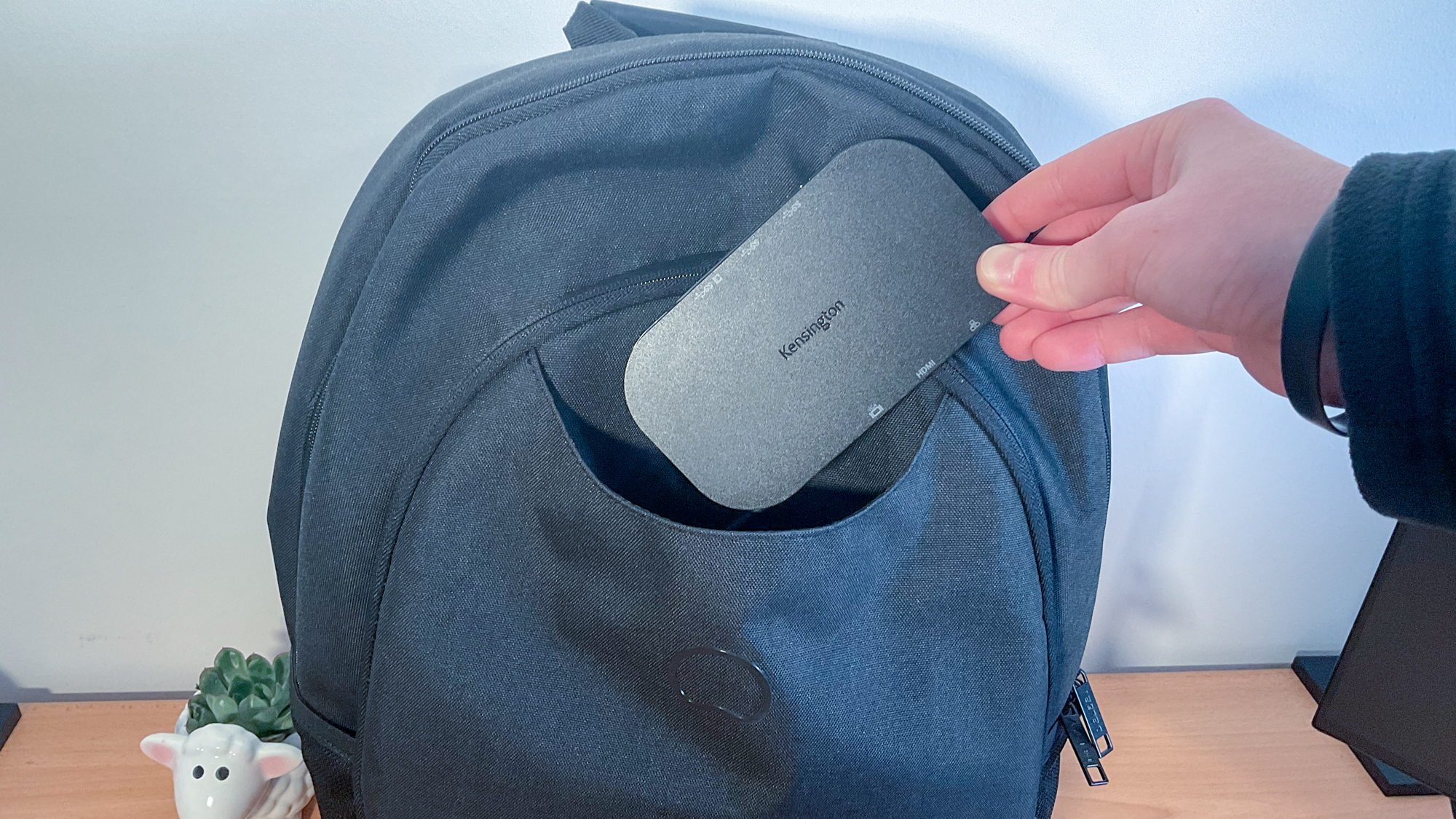
A USB-C hub is mainly used to expand the number of ports on your laptop and is generally powered by the laptop itself. A good hub is typically small and lightweight to match the portability of a laptop, and is perfect for professionals who are constantly on the move. While they mainly offer more USB-A 3.0 ports, seeing as most PC peripherals rely on USB-A connectivity, you’ll find plenty of the best hubs with SD card slots, HDMI and DisplayPort inputs, and Gigabit Ethernet ports.
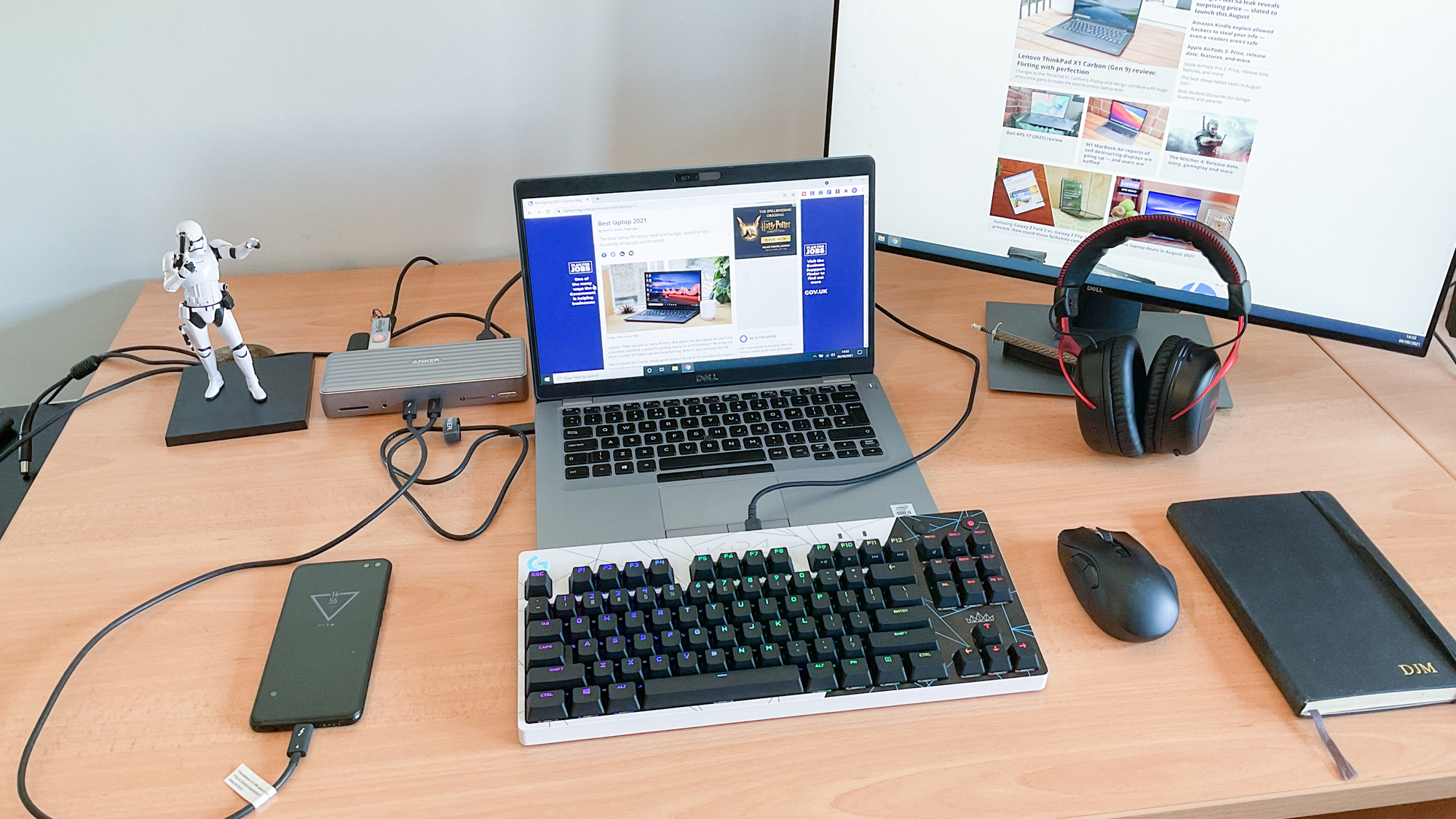
Docking stations are a step up from USB-C hubs in some ways, but are generally less portable and more expensive. These deliver connectivity for everything, offering upwards of ten ports for all kinds of peripherals. They are mainly used to turn your laptop into a desktop replacement, supporting up to 8K resolution or dual 4K at 60Hz, audio connectivity, SD card readers, and a lot of USB-A or USB-C devices. Docking stations can power all these at once, along with your laptop, as they deliver power via a power outlet.
If you’re in need of power, the best docking stations will sort you out. However, when it comes to MacBooks, USB-C hubs make for the perfect laptop accessory. Apple’s premium laptops can only connect to a single external display, meaning they don’t require all the ports a docking station boasts. This used to be the case for all MacBook models, but thanks to Apple’s M1 Pro and M1 Max chips, the MacBook Pro 14 and MacBook Pro 16 now have the ability to support up to three Pro Display XDRs and a fourth 4K TV display. MacBook docking stations are looking a lot more reasonable.
Hybrid hubs
What if you could take some of the perks of a docking station and fit them into a USB-C hub while keeping the affordable price tag? Let me introduce you to hybrid hubs, which have the ability to power your laptop or work from your laptop’s battery — all while keeping a small form factor. They may not offer as many ports as docking stations or Thunderbolt 4 compatibility (yet), but they can still deliver 4K monitor support at 60Hz, up to 100W power delivery and compatibility with virtually every platform.
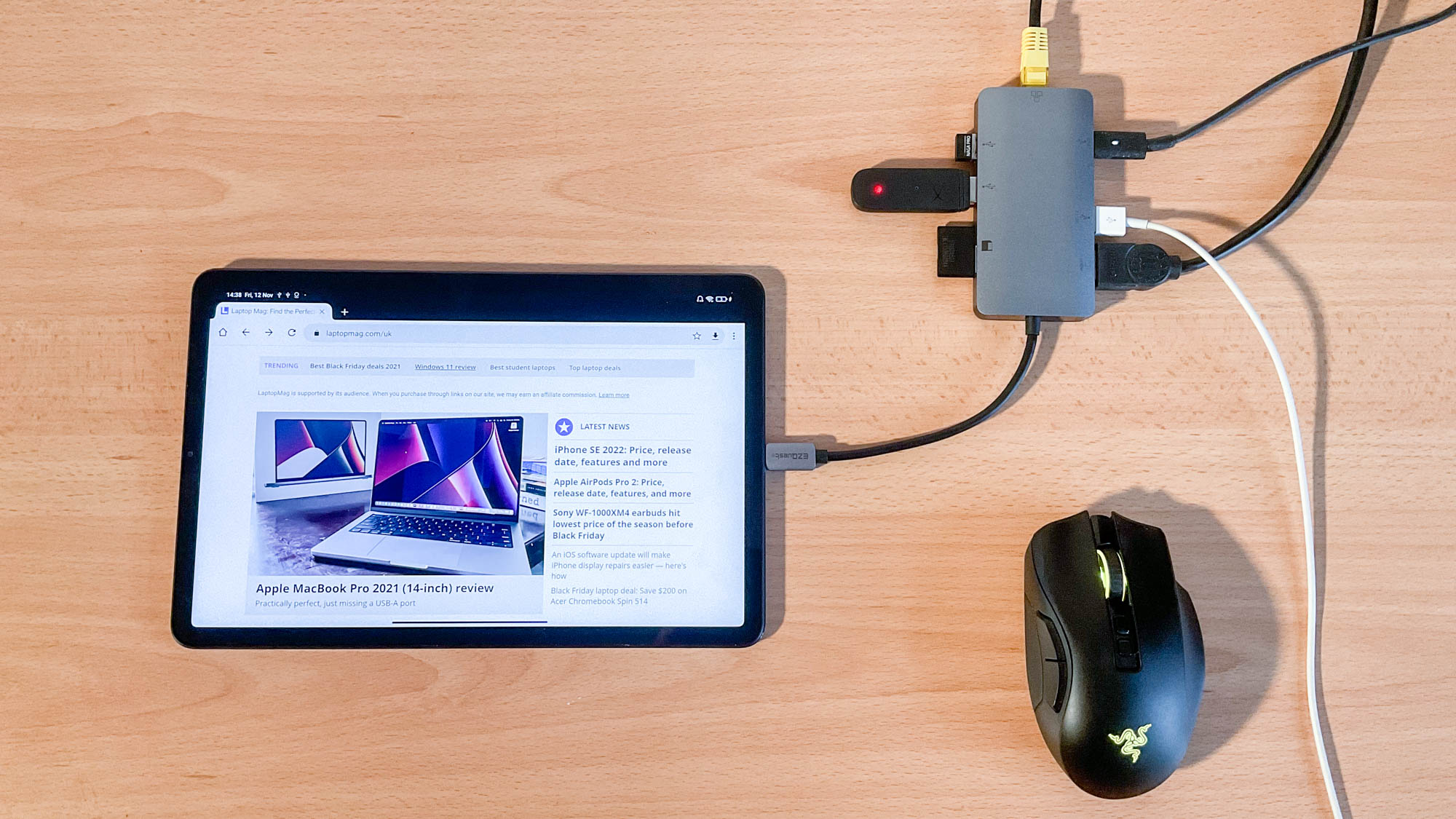
Take EZQuest’s USB-C Multimedia Hub as an example. This eight-port USB-C hub offers a multitude of ports and 100W power delivery in a sleek, travel-friendly design. Althoughrelatively pricey, its $69.99 price tag is well under the usual $200 price range of docking stations, and it even works seamlessly with an iPad, Android tablet or smartphone. You’re getting a lot of bang for your buck. What’s more, it’s even competitively priced when compared to the $109 Kensington SD1650P USB-C 4K Portable Docking Station — another brilliant hybrid hub.
Stay in the know with Laptop Mag
Get our in-depth reviews, helpful tips, great deals, and the biggest news stories delivered to your inbox.
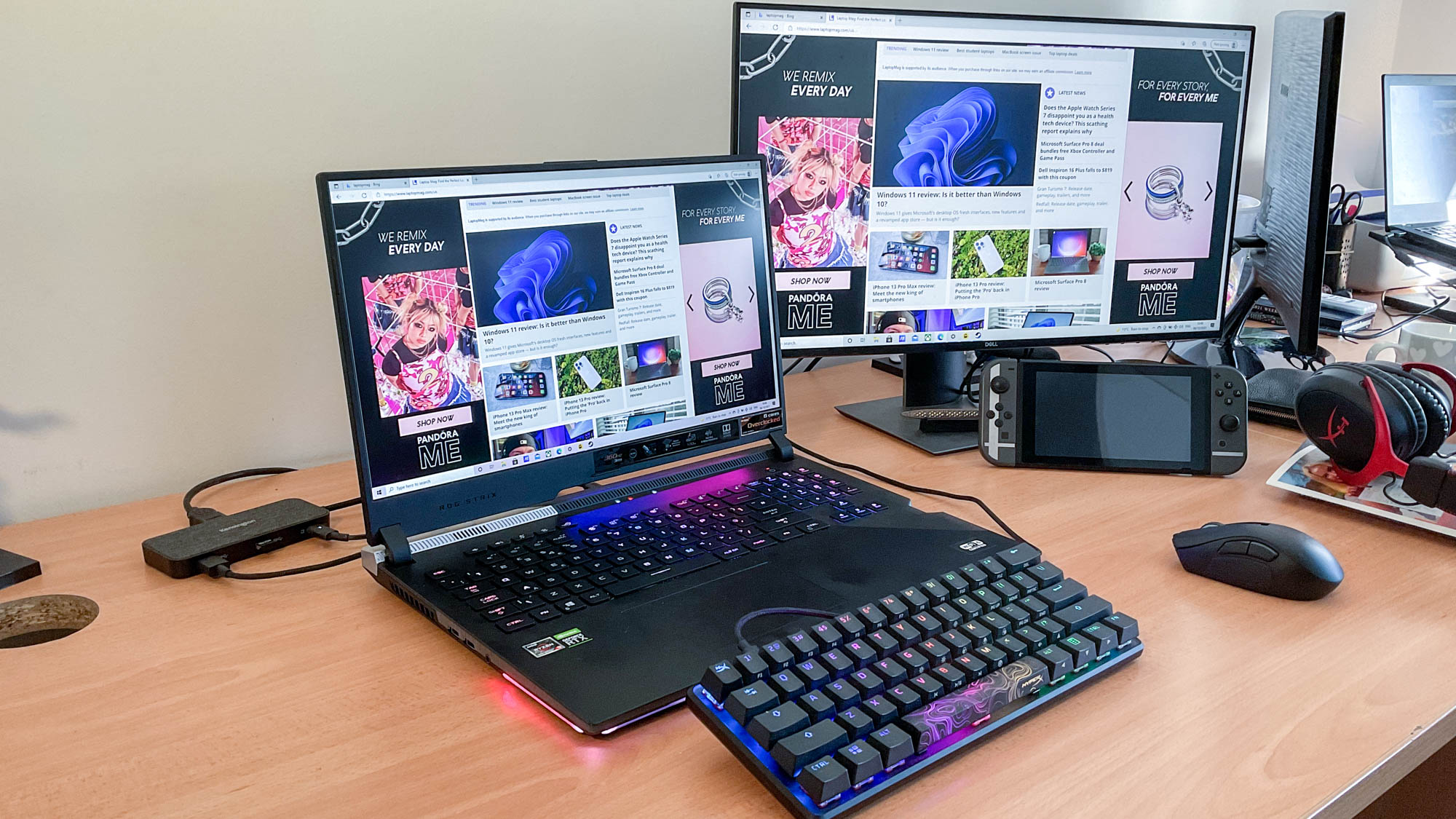
For those who really don’t want to break the bank, Plugable’s USB-C 7-in-1 Hub offers 87W pass-through power and 4K HDMI support in a small and lightweight form factor for as little as $27. There are some limitations, seeing as we found the pass-through power delivery to be dodgy, but for laptop owners seeking a device they can easily slip into a laptop bag that also acts as a port extender, this hybrid hub delivers.
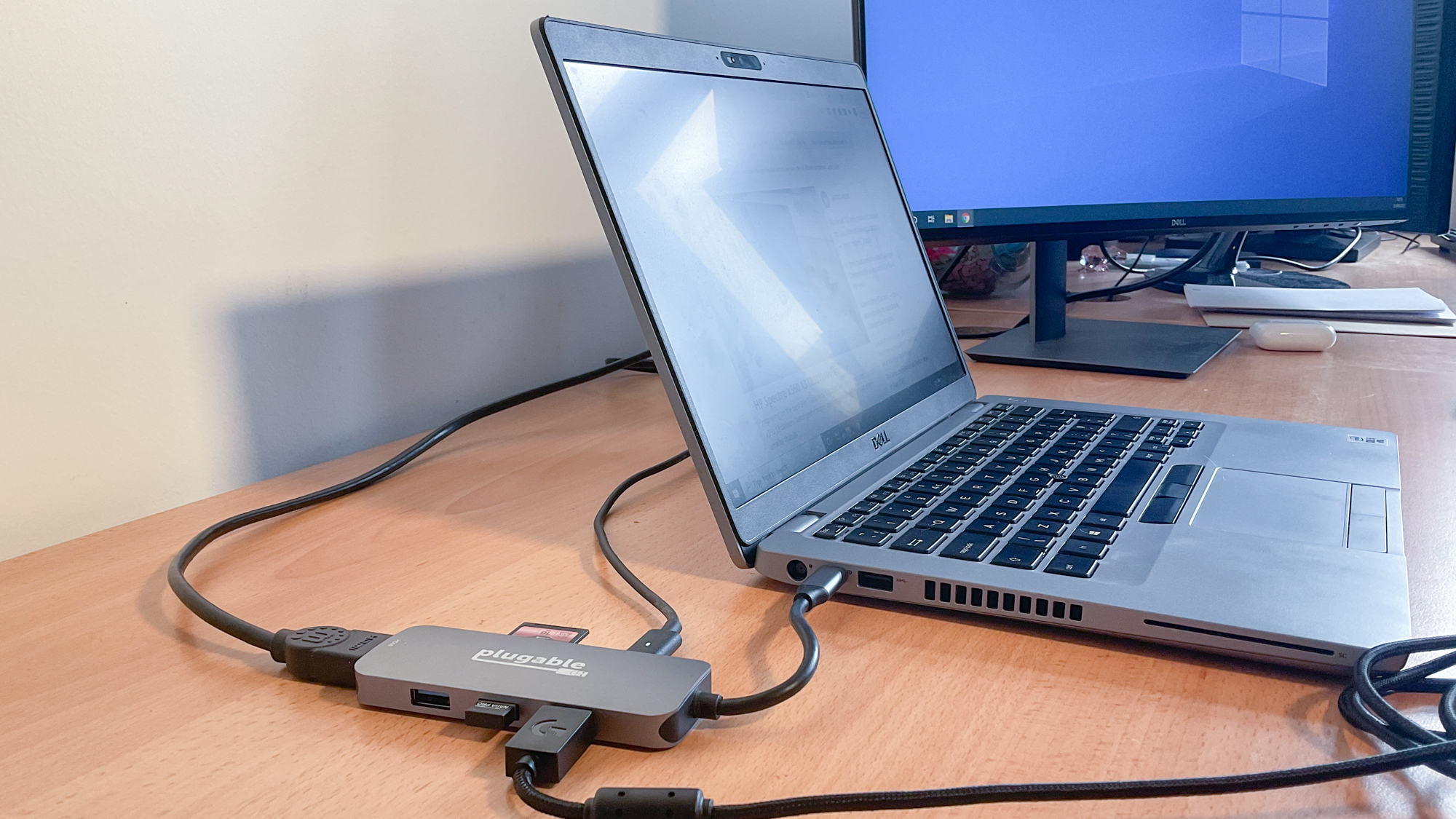
Hybrid hubs are fantastic alternatives if you’re looking for the best of both worlds, but the best USB-C hubs can still be more portable and much easier on the wallet depending on what laptop you use. For instance, the Anker PowerExpand Direct 7-in-2 USB-C Adapter offers a Thunderbolt 3 USB-C port, 100W Power Delivery, 4K HDMI, two USB-A ports, along with an SD and MicroSD card reader. It’s specifically designed for MacBook owners, making it fit on the laptop rather than look like a dongle.
Which is best?
This all depends on what you need. Travelling professionals that are constantly changing work environments can save their hard-earned money with a simple USB-C hub or more adaptable hybrid hub, but offices and work-from-home setups will gain a significant advantage in versatility (and a cleaner workspace) with a laptop docking station.
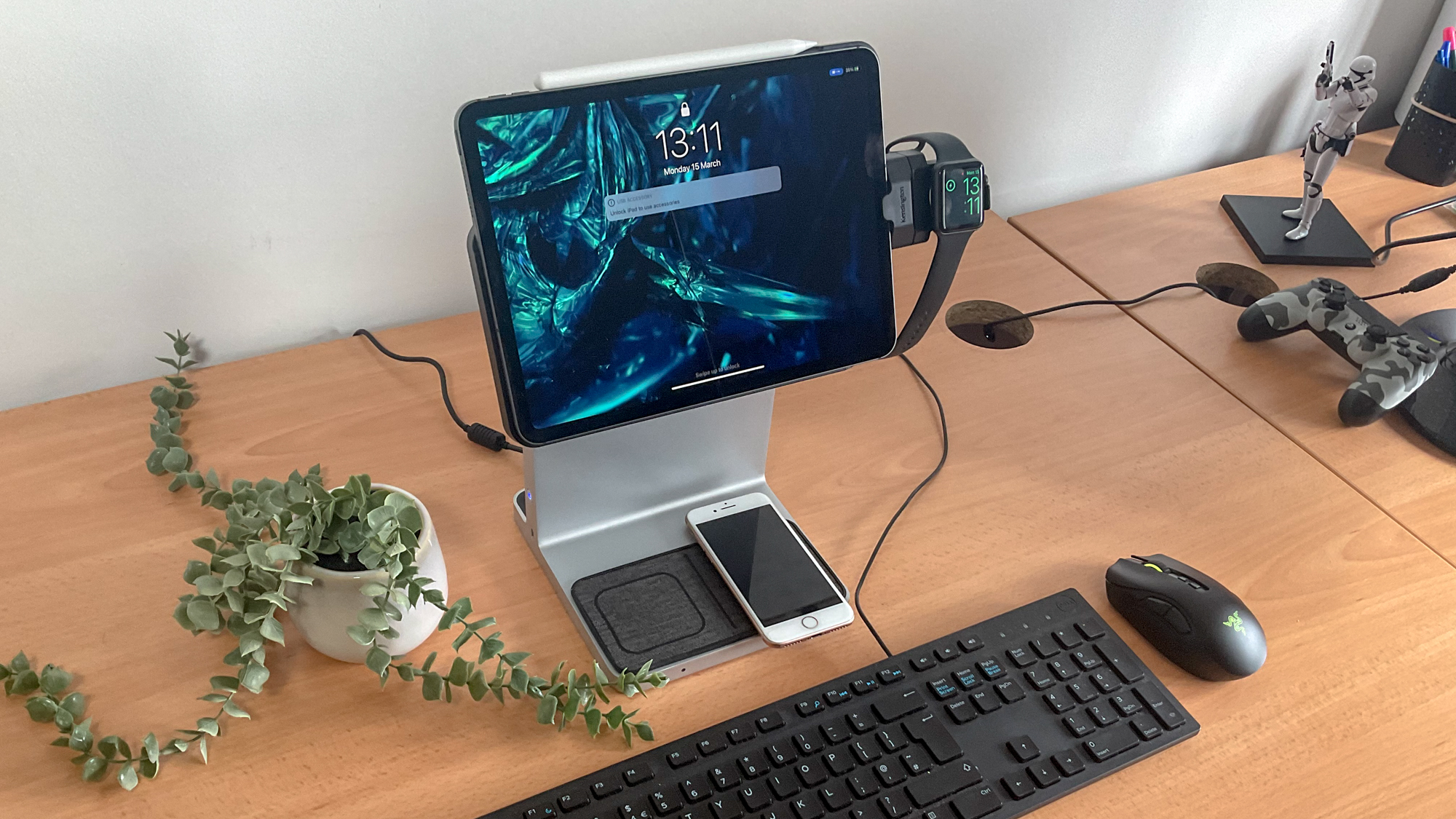
The good news is there are a vast amount of adapters that can suit your specific needs. Want to make the most of your iPad while charging the rest of your Apple devices? The Kensington StudioDock iPad docking station will do the trick. I personally use this on a daily basis, as it allows me to plug in a mouse and keyboard to use my iPad Air (2020) as a mini desktop.
While not technically a docking station, the IOGear 4K USB-C and DisplayPort KVMP Switch is the perfect device for those with multiple laptops and a desktop. It allows users to easily plug in their USB-C-equipped laptops and share accessories, displays, and printers with two other PCs — whether it's another laptop or a desktop. If you have a gaming rig and also use a laptop for work, this device will let you switch between the two on the fly, all while using the same keyboard and mouse.
Much like how laptops continue to evolve every year, USB-C hubs and docking stations improve along with them. With Thunderbolt 4 connectivity becoming the norm and hybrid hubs being the ideal option for most, expect to see better adapters down the line. One thing is for sure: with every inevitable MacBook or Windows laptop release, expect there to be a USB-C hub or docking station to match it.

Darragh Murphy is fascinated by all things bizarre, which usually leads to assorted coverage varying from washing machines designed for AirPods to the mischievous world of cyberattacks. Whether it's connecting Scar from The Lion King to two-factor authentication or turning his love for gadgets into a fabricated rap battle from 8 Mile, he believes there’s always a quirky spin to be made. With a Master’s degree in Magazine Journalism from The University of Sheffield, along with short stints at Kerrang! and Exposed Magazine, Darragh started his career writing about the tech industry at Time Out Dubai and ShortList Dubai, covering everything from the latest iPhone models and Huawei laptops to massive Esports events in the Middle East. Now, he can be found proudly diving into gaming, gadgets, and letting readers know the joys of docking stations for Laptop Mag.
